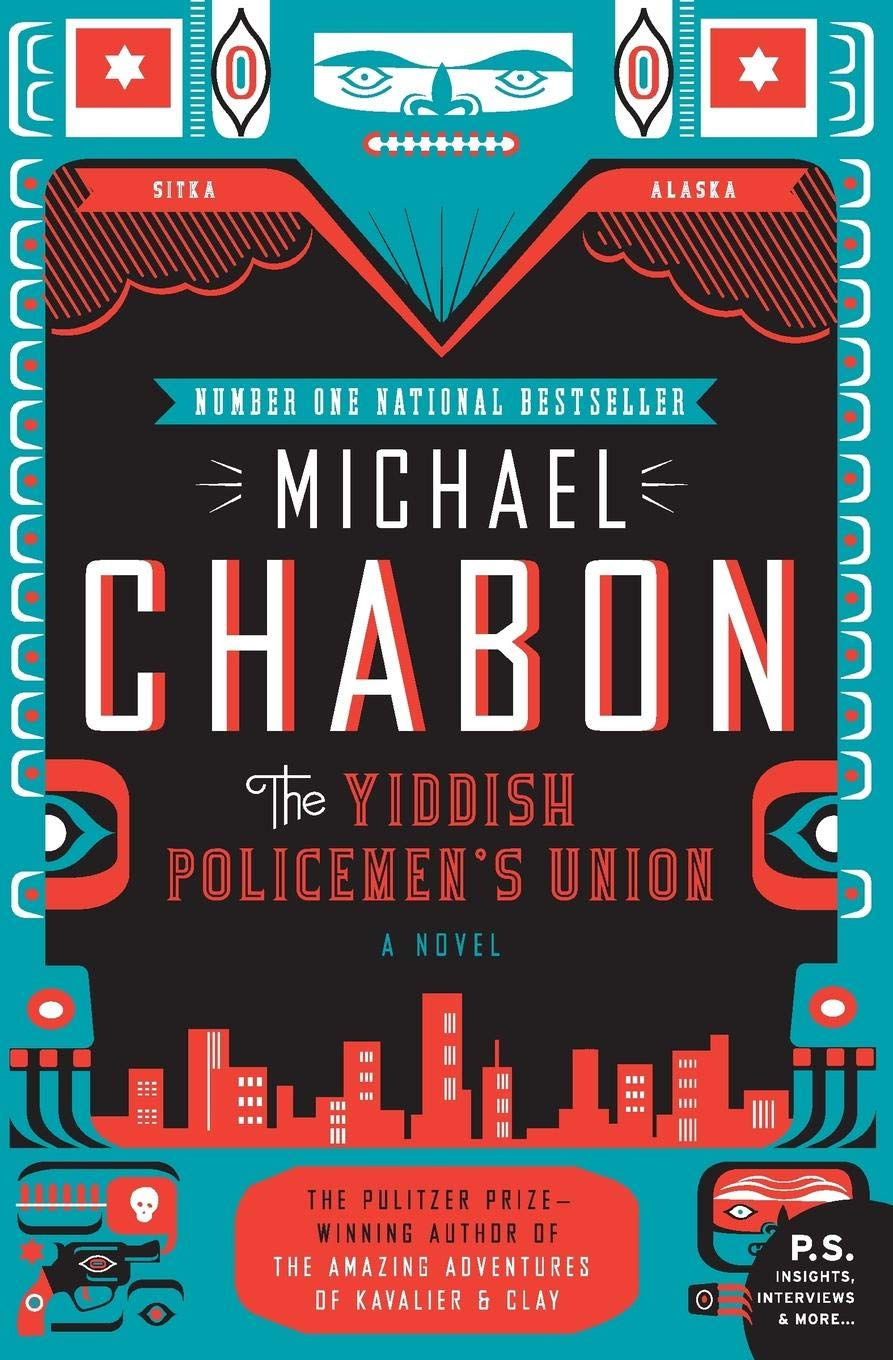
The book is set in an alternate historical reality in which Jews founded a major metropolis in Alaska in 1941, and the State of Israel was destroyed in 1948. In 2008, Chabon received for him two of the most famous literary awards for science fiction writers - "Hugo" and "Nebula". BookJack explains why the newly published novel is definitely worth reading.
Michael Chabon (b. 1963) is an acclaimed and bestselling author whose works include the Pulitzer Prize–winning novel The Amazing Adventures of Kavalier & Clay (2000). Chabon achieved literary fame at age twenty-four with his first novel, The Mysteries of Pittsburgh (1988), which was a major critical and commercial success. He then published Wonder Boys (1995), another bestseller, which was made into a film starring Michael Douglas. One of America’s most distinctive voices, Chabon has been called “a magical prose stylist” by the New York Times Book Review, and is known for his lively writing, nostalgia for bygone modes of storytelling, and deep empathy for the human predicament.
This is the strangest genre crossover imaginable.
Michael Chabon's novel combines alternative history, detective story and classical Jewish prose in the best traditions of Sholem Aleichem and Isaac Bashevis-Singer. Chabon manages to construct the most detailed and convincing world, almost redundant in its detail, to place in it an exciting and very human story, and to tell this story in a language that is both recognizable, comfortably rooted in tradition and at the same time completely original.
A wonderful world is created in the novel
Imagine a world in which, after World War II, Jewish attempts to gain a foothold in Palestine were unsuccessful - and the State of Israel never appeared on the map. Instead, the Jews who survived the Holocaust received for temporary use a plot in Alaska, in Sitka County, where on the windy coast of the Pacific Ocean, surrounded by Indian settlements and snow-capped mountains, a mirage, closed and lively enclave of pre-war European Jewry was mothballed and flourished.
Here they speak Yiddish, observe kosher, wear black hats, quarrel noisily, play chess, give children names like Esther-Malke or Pinchas, earn whatever they have to, build skyscrapers and expect the coming of Moshiach, the Messiah, from day to day. By the beginning of the novel, more than three million people live in the Jewish Sitka, and the expectation of Moshiach is becoming especially impatient: the 60-year term for which the Americans agreed to let Jews in Alaska expire in a couple of months, and the future of the inhabitants of circumpolar Zion looks alarming and unpredictable ... It seems that a new Exodus awaits all of them in an unknown direction.
It's also an exemplary detective.
In the run-down Zamenhof Hotel, named after the creator of the Esperanto language, the body of a young man shot at point-blank range was found. Next to the corpse, the police find a chessboard with an unfinished game and tefillin - a string from the prayer attire of a devout Jew, with which the deceased pulled his hand before injecting heroin into his vein.
The police go on the trail, and discovers a strange circumstance: everyone who at least once came into contact with this strange drug addict-chess player mourns him as a close relative, and his entire short life path is literally shining with the warm light of universal love and admiration. Evidence is leading an investigation into the Verba Hasidic community - the most prosperous, mysterious and devout criminal community in Sitka. However, the hunt for the murderer is complicated by the fact that the case is officially closed: for the two months remaining before Sitka's loss of special status, the Jewish police must put the archives in order, and they do not need a new "hangman". Placed in the phantasmagoric world of Jewish Alaska, classic detective techniques take on a striking freshness and look in the least hackneyed.
And the characters in it are charming and unusual
The protagonist of the Union of Jewish Policemen, Meyer Landsman, seemed to have stepped out of the pages of a classic "cool" detective story: he drinks a lot, does not believe in God or in devil, jokes gloomily, lives in a hotel (the same "Zamenhof", side by side with killed), because his wife kicked him out of the house, and prefers a good blow to the jaw to any conversation. However, under the rude appearance in the soul of Landsman lies a secret tenderness, and one of its addressees is his partner and cousin, Berko Shemets, a two-meter-tall fruit of the lawless love of a Jew and an Indian from the Tlingit tribe, a God-fearing Jew, a loving husband and an anxious father. This couple of detectives, tragicomic and charming, decides to challenge the police routine and find the murderers of the mysterious chess player, in which, with every page, the features of a righteous tzaddik, or even a messiah, appear more and more clearly.
The novel is superbly translated
The "Union of Jewish Policemen" was already published in Russian 11 years ago, but then the translator obviously did not cope with the difficult style of Michael Chabon: the text abounded with gross errors, most of the Yiddish words were translated incorrectly, and, as a result, it was very difficult to read the novel, if at all maybe.
Unlike her predecessor, Elena Kalyavina, in her own words, “spent several months in the dank Jewish Sitka, lived them day after day with the heroes of the novel, hiding somewhere out there, on the glassed-in loggia of the Dnipro skyscraper”, and having time to become attached to these people, as if they were related to her. The resulting text has a very characteristic, expressive intonation - both ironic and piercing, and the Russian reader will associate primarily with the texts of Isaac Babel.
This article was sponsored by Robert Bachhuber
Comments